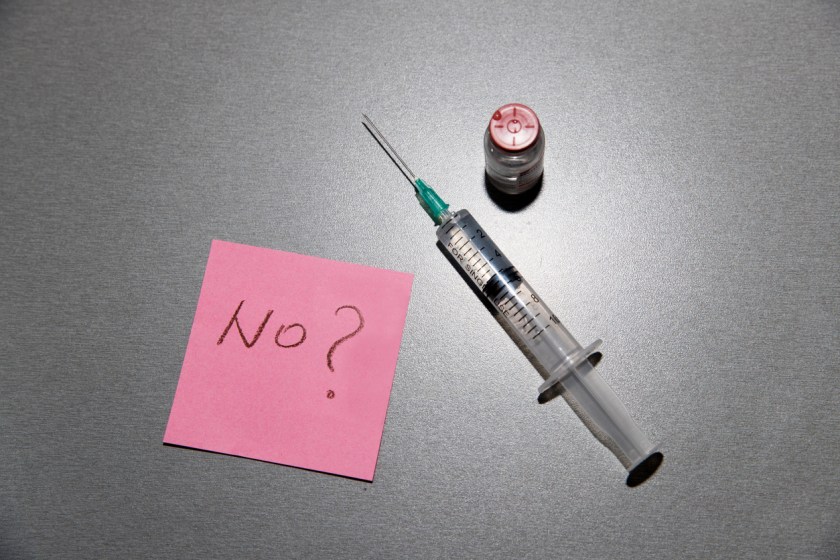Are clinics allowed to offer aesthetic treatments from today? The question remains.
It’s been a turbulent weekend for aesthetic medical practitioners, with both ASAPS and the CPCA releasing statements to their members regarding the recommencement of cosmetic medical procedures.
On Friday April 24, the CPCA’s announcement read “When COVID-19 was declared a global pandemic, a serious shortage of Personal Protective Equipment (PPE) was identified. Key stakeholder organisations which jointly represent doctors who perform cosmetic medical procedures (non-surgical) made the self-determination, in the absence of specific state and federal guidance, to cease cosmetic medical procedures. Today, more than sufficient PPE supplies are now available, and this is complemented by the recent easing of restrictions on elective procedures, including dental and IVF. It is now time to prepare a staged return to work for doctors, and with it, the required responsibility to implement protocols of social distancing and other safety measures. The CPCA supports the recommencement of elective cosmetic medical procedures on 27th April 2020.”
ASAPS also made a similar announcement on Friday encouraging the re-opening of medical clinics offering aesthetic procedures. These statements sparked widespread confusion and debate throughout industry across the weekend, with disputes arising over whether industry bodies have legal authority to provide these recommendations despite no new changes in federal or state policies, and whether or not non-surgical aesthetic treatments fall under the Australian Health Protection Principal Committee’s (AHPPC) statement on restoration of elective surgery – which states “Cosmetic or other procedures not addressing significant medical conditions must not be included.”
Some clinics are re-opening this week
The CPCA’s announcement has directly resulted in clinic operators who are CPCA members to reopen their doors today. Larger chains, such as Artisan Clinics, have also announced its imminent re-opening, opening up a waitlist to take bookings from May 18.
Other physicians have stated they are working closely with the CPCA and will base decisions to reopen based on their guidance, which could be in the coming days or weeks. Others have stated they will remain closed indefinitely until explicitly encouraged to do so by the government, citing that currently, non-surgical aesthetic treatments are still classified as non-essential.
ASAPS revised previous statement
In another sharp turn of events, ASAPS released a new statement last night (Sunday April 26) superseding its advice from Friday. In a joint statement with ASCD, the message read “Over the past 48 hours, we have diligently reviewed all information, considered the regulatory and reputational risk and once again prioritised public and patient safety over and above everything else. ASAPS and ASCD acknowledge and appreciate all the Government’s efforts during this unprecedented pandemic and are committed to support all government measures including the staged reintroduction of services. As of today, we do not have explicit and legally binding instructions from the regulatory authorities, to endorse returns to non surgical cosmetic injecting. ASAPS and ASCD cannot, at this time, recommend resuming treatments using neurotoxins and tissue fillers for cosmetic indications until further information is forthcoming.”
Exclusive commentary from CPCA President, Dr Michael Molton
SPA+CLINIC received an exclusive statement this morning (Monday April 27) from Dr Michael Molton, President of the CPCA. “As of today, there is no clear picture of what should or shouldn’t be done as the situation is fluid and changing daily. The Cosmetic Physicians College of Australasia (CPCA) has prepared strict protocols for College members to prepare their clinics in respect to COVID19, if and when members decide to return to work. It was never illegal for medical facilities to cease cosmetic medicine procedures. The College recommended ceasing based on the fact that it was the ethical thing to do because of the dire shortage of PPE that was to be reserved for frontline workers. The college is reviewing the situation on an hour by hour basis”.
Currently, the industry remains divided, and all we can say is this: while we wait for further clear instructions from our state and federal authorities – please be kind to one another. We understand that this is a terribly disorienting time and many practitioners and business owners are utterly confused about how to proceed or in desperate situations. If you have any questions, please leave us a comment below and we will do our best to answer them.





